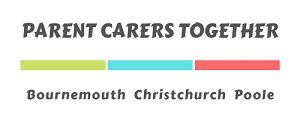
Puberty can be a difficult topic to discuss but it happens to us all. Below are some resources you may find useful in explaining to your young adult what will and is happening to their body as they grow up.
Let’s Talk about Puberty– a easy read booklet about growing up for
young people who have a learning disability, developed by Down’s Syndrome Scotland. Relevant to males and females.
Puberty for Boys
Puberty in boys with learning disabilities– a webpage by Sheffield Children’s NHS Foundation Trust containing photo symbols and short sentences covering changes to the male body.
Puberty for Girls
Periods can be a pain at best of times. For those with sensory processing disorders it can be more challenging. Seamless period pants offer a smooth, invisible fit under clothing but also eliminates irritation.
Puberty for Girls– a booklet produced by Bournemouth University students for Linwood School, with support of the Linwood Total Communication Team and Dorset Healthcare July 2018.
Puberty in girls with learning disabilities– a webpage by Sheffield Children’s NHS Foundation Trust which contains strategies, key messages for parents and further references.
Puberty and Trans or Gender Diverse Children Resources
Webpage from Raising Children (an Australian parenting site) discussing puberty and trans or gender diverse children (7-15 years old).
Gender-inclusive (but not SEND specific) books about puberty for tweens-
- You-ology: A Puberty Guide for EVERY Body by Trish Hutchison, Kathryn Lowe, and Melisa Holmes
Puberty Is Gross, but Also Really Awesome by Gina Loveless and Lauri Johnston
The Every Body Book: The LGBTQ+ Inclusive Guide for Kids about Sex, Gender, Bodies, and Families by Rachel E. Simon and Noah Grigni
You Know, Sex: Bodies, Gender, Puberty, and Other Things by Cory Silverberg and Fiona Smyth
Puberty Blockers
Puberty blockers (sometimes called “puberty suppressing hormones”) are medications which block the release of puberty inducting hormones. This delays the progress of puberty and the development of secondary sexual characteristics. In June 2024, the government introduced an emergency ban on the prescribing and supply of puberty blockers to children and young people under 18 in England, Wales and Scotland. This affects children and young people who did not have a prescription before 3rd June 2024 and those whose prescriptions were issued by prescribers registered outside the UK. This ban will be in place until 3rd September 2024.
The most common type of medication used are gonadotrophin-releasing hormone analogues. They are currently prescribed as a treatment for precocious (early) puberty, some hormone-dependent cancers, and for endometriosis.
Find out more on NHS England’s website.
